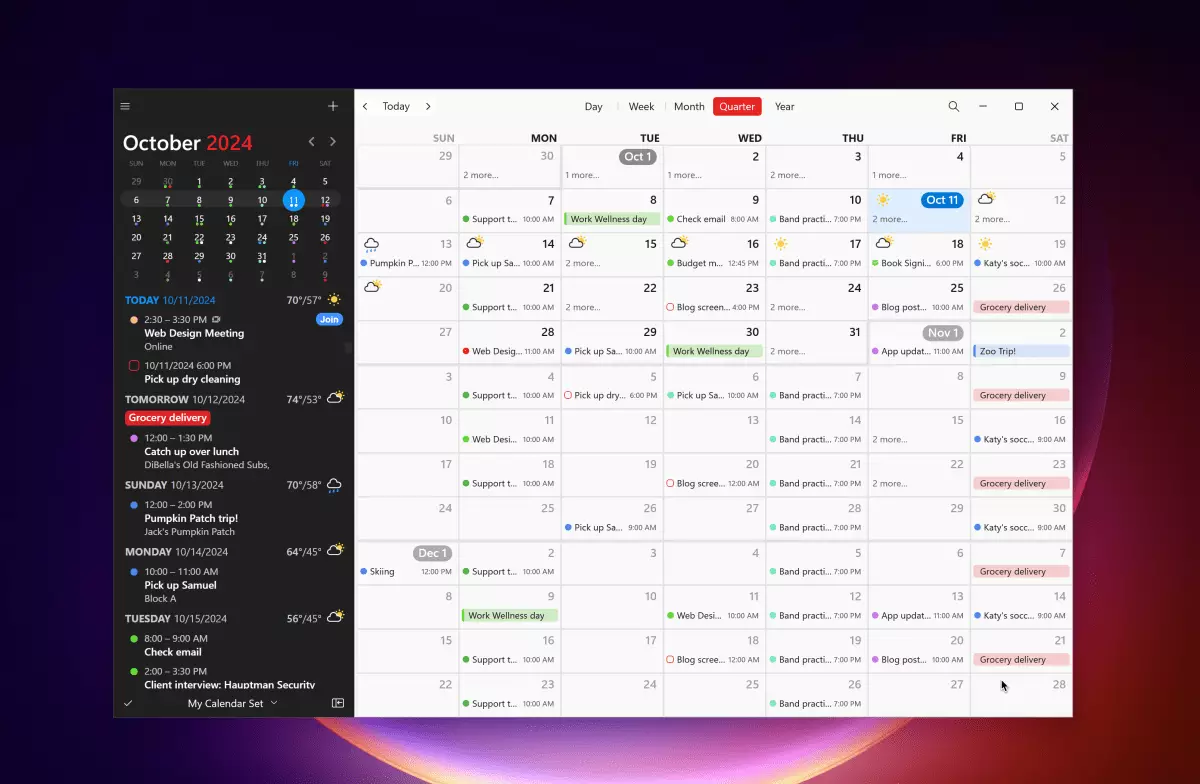In the competitive world of productivity applications, many contenders come and go, often fading into obscurity after their initial splash. Yet, one application that has managed to stand the test of time is Fantastical, a calendar application initially released for Mac users in 2011. Developed by Flexibits, this product has persisted and evolved over the years, fundamentally altering how users interact with their calendar events across various platforms. With its recent launch on Windows, Fantastical’s journey embodies significant insights into user needs, platform adaptability, and the quest for productivity.
When Fantastical initially launched, it occupied a niche space predominantly catering to Mac users. The application’s appealing design, intuitive functionality, and user-friendly interface quickly garnered a loyal following. Over the years, Flexibits has responded decisively to user feedback, implementing updates that address emerging user needs and preferences. This cycle of improvement is not just a testament to the app’s flexibility but also illustrates a broader trend within app development: the requirement for continuous enhancement to maintain user engagement.
Flexibits has not only expanded Fantastical to other Apple devices, including iPhones and Apple Watches, but it has also recently announced its availability on Windows. Co-founder Michael Simmons emphasizes the critical decision to create a Windows version, highlighting that doing so was not merely a business move but a response to the diverse needs of potential users. By breaking free from an Apple-only mindset, Fantastical acknowledges the vast audience using Windows platforms, thereby enhancing productivity for an even broader demographic of users.
What sets Fantastical apart from other calendar applications is its unique set of features tailored to improve user experience in managing events. One standout feature is its ability to integrate various calendar accounts into a single, cohesive user interface, which simplifies the often chaotic nature of modern scheduling. Support for popular services like Google Workspace, Microsoft 365, and iCloud ensures that users can manage both personal and professional commitments seamlessly.
Additionally, Fantastical leverages natural language processing, allowing users to create calendar events effortlessly. Rather than navigating through numerous menus or forms, users can simply textually describe their plans, and the app intuitively organizes the information into a structured event. This innovative feature reduces the friction often encountered in typical task scheduling, inviting users to interact with their calendars more fluidly.
In our increasingly interconnected digital world, facilitating effective communication is key. Fantastical recognizes this by incorporating functionalities like Openings, which offers users a way to share events and manage RSVPs within their networks. This feature is particularly valuable in professional settings, enabling team members to coordinate meetings without extensive back-and-forth communication.
Moreover, for users navigating multiple remote conferences, Fantastical’s automatic detection of call links in calendar invites is a significant advantage. The app simplifies the process of joining virtual meetings, allowing users to focus more on their work rather than get bogged down by logistics. The attention to such details showcases Flexibits’ understanding of users’ pain points, further solidifying Fantastical’s position in the productivity landscape.
While the launch of Fantastical on Windows marks an exciting milestone, it brings forth questions about future directions for the app. During discussions, Simmons hinted at a cautious stance towards developing an Android version. He cites the challenges faced by indie developers in the Android ecosystem, referencing issues like hefty security audits imposed by Google. This insight into the limitations and difficulties of the Android market highlights an important consideration for startup developers: understanding where to invest resources for maximum impact.
Despite the glaring competition, Fantastical remains focused on maximizing its effectiveness across established platforms. With the commitment to simultaneously update all versions of the app, including Windows, Mac, and iOS, users can expect a consistent experience, whether working from home or in a corporate setting. This commitment not only fosters brand loyalty but also ensures that every user reaps the benefits of ongoing improvements.
Fantastical’s evolution from an Apple-exclusive app to a cross-platform productivity powerhouse serves as an effective case study in adaptability within the tech industry. By embracing user diversity and prioritizing functionality that meets real-world needs, Flexibits has created a product that resonates with a broad audience. As we move further into an era where work and technology intersect, Fantastical stands as a testament to thoughtful development and a nuanced understanding of user experience, signifying that staying relevant often requires looking beyond one’s original vision.

